Last updated on May 12, 2025
Are you curious about how profitable poultry farming can be in Nigeria? Maybe you’re thinking about diving into the poultry business, but you’re unsure if it’s worth the time, money, and effort. Or perhaps you’re already in the game and wondering how you can increase your profits. Well, you’re in the right place!
The poultry industry in Nigeria is booming, and for good reason. It’s one of the most lucrative agricultural ventures you can start, with the potential for quick returns and long-term profitability. Whether you’re considering raising broilers for meat or layers for eggs, there’s a ton of money to be made – if you know what you’re doing.
But here’s the catch: Not all poultry farms are created equal. The difference between a struggling farm and a thriving one often boils down to a few key factors: proper planning, management, and understanding of the economics of the business. In this article, I’m going to break down everything you need to know to decide if poultry farming is the right fit for you and how you can start turning a profit.




From understanding startup costs to the factors that affect profitability, we’ll cover it all. Trust me, if you’re looking to succeed in the poultry business in Nigeria, you don’t want to miss out on any of this valuable information. So keep reading until the end – it could change the way you think about poultry farming!
What You’ll Learn in This Article:
- The key factors that influence the profitability of poultry farming in Nigeria.
- How much does it cost to start a poultry farm, whether you’re raising broilers or layers?
- How much you can realistically expect to earn from a poultry farm?
- What to watch out for and how to manage risks to keep your farm running smoothly.
Ready to learn? Let’s go!
What Makes Poultry Farming Profitable in Nigeria?
Poultry farming stands out as one of the most lucrative agricultural ventures in Nigeria for several reasons:



1. High Demand for Poultry Products
Nigeria has a large and ever-growing population, and with that comes a constant demand for poultry products, primarily chicken meat and eggs. According to the National Bureau of Statistics, the Nigerian poultry sector contributes significantly to the country’s agricultural GDP. The demand for both chicken and eggs has been steadily increasing, especially in urban areas where people eat more processed and ready-to-cook food.
Whether it’s eggs for breakfast or chicken on the grill for dinner, there’s always a market for poultry products. This steady demand ensures that poultry farming can be profitable if you manage your farm well.
2. Quick Turnaround Time (Especially for Broilers)
One of the main reasons poultry farming is so profitable is the fast growth rate of broilers (chickens raised for meat). Broilers typically reach maturity in just 6-8 weeks, meaning you can sell them quickly and reinvest in the next batch. In contrast, other forms of farming, like crop production or cattle farming, require longer periods of growth before you can harvest or sell. This quick turnaround allows you to cycle multiple batches of broilers within a year, maximizing your income.
3. Low Entry Barriers
Starting a poultry farm in Nigeria doesn’t require a massive capital investment compared to other agricultural businesses. While commercial-scale operations may need substantial funds for infrastructure and equipment, small to medium-sized poultry farms can be started with relatively low investment. This makes poultry farming a viable option for many entrepreneurs in Nigeria.




With just a few thousand naira, you can begin with a small poultry farm and scale it as you gain experience and capital. The key is to start small, understand the market, and grow your business steadily.
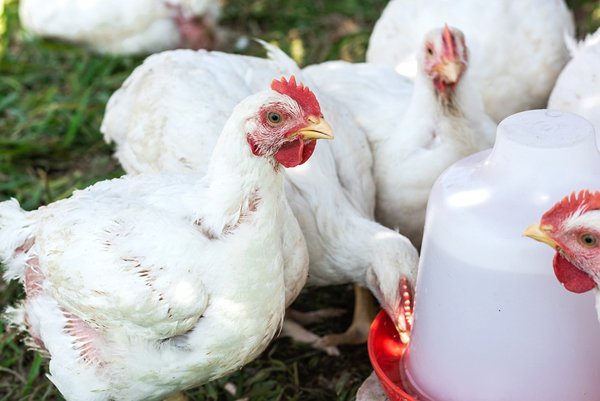
The Costs Involved in Starting a Poultry Farm
Now, let’s talk money. How much do you need to start a poultry farm in Nigeria? While the initial costs vary based on the size and type of poultry farm you want to start, here’s an estimate of the key expenses you’ll incur:
1. Cost of Chicks (Broilers or Layers)
- Broilers: You can expect to pay around ₦250 to ₦500 per broiler chick. If you’re starting with 1,000 broilers, you’ll spend approximately ₦250,000 to ₦500,000 just on the chicks.
- Layers: Layer chicks cost a little less, generally around ₦200 to ₦500 each. So, for 1,000 layers, you’re looking at about ₦200,000 to ₦500,000 in initial chick costs.
2. Feed and Nutrition
Feed is one of the most significant ongoing expenses in poultry farming. The cost of feed varies depending on the type (broiler feed or layer feed) and the current market prices of raw materials like maize and soybeans.
For Broilers:
Understanding the feed requirements and associated costs is crucial for profitable broiler farming. As we’ve seen, raising 100 broilers over 6-8 weeks typically requires 50-70 bags of feed, costing between ₦350,000 and ₦500,000. Careful planning and efficient feed management are key to maximizing your returns. Want to learn more about optimizing your broiler farm for profitability? Check out our comprehensive guide to broiler farming best practices‘





For Layers:
Feeding layers is a long-term investment, and knowing the monthly feed requirements is essential for budgeting. On average, 100 layers consume 6-9 bags of feed per month, with a monthly cost of ₦150,000 to ₦250,000. Efficient feed management and selecting quality feed are vital for sustained egg production and profitability. Ready to optimize your layer farm for maximum egg yield and profit? Explore our expert tips on layer feed management and production.
3. Housing and Equipment
Building a poultry house or pen is another essential cost. The size and type of housing depend on how many birds you plan to raise. A simple poultry house can cost between ₦150,000 to ₦200,000, which includes the cost of constructing the pens, buying feeders, drinkers, and basic equipment.
4. Health and Veterinary Care
Another ongoing expense is veterinary care. You’ll need to vaccinate your birds regularly to protect them from diseases like Newcastle Disease, Avian Influenza, and others. You may also need to spend on medications for treating sick birds and managing parasites.
- Costs: Vaccinations and veterinary services can cost between ₦50,000 to ₦100,000 monthly depending on the size of your farm.
5. Labor and Other Operational Costs
You may need to hire workers to manage the farm, especially as your operation grows. The cost of labor can vary, but on average, you can expect to pay around ₦50,000 to ₦100,000 per month per worker. Other costs may include transportation, electricity, and daily operational expenses.
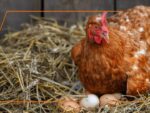
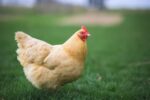



How Much Can You Earn from Poultry Farming?
You’ve invested, you’re up and running – but how much can you earn from your poultry farm?
For Broiler Farming:
Broilers are raised for meat, and they reach market size in just 6-8 weeks. Here’s how the numbers break down:
- Revenue per 1,000 Broilers: If you sell each broiler for about ₦3,500, that gives you ₦3,500,000 in revenue from selling 1,000 broilers.
- Costs: Total expenses (chicks, feed, housing, etc.) for 1,000 broilers might amount to ₦1,200,000 to ₦1,500,000.
- Net Profit: After expenses, you could earn a net profit of ₦2,000,000 to ₦2,500,000 per cycle. And because broilers grow so quickly, you can run several cycles per year, maximizing your profits.
For Layer Farming:
Layers offer steady, long-term income. Here’s how the numbers work out for 1,000 layers:
- Revenue per Month: Each layer produces about 25 eggs per month, and if you sell eggs at ₦30 each, you’re looking at ₦750,000 per month.
- Expenses: Monthly costs for feed, labor, and other essentials could total ₦300,000 to ₦500,000.
- Net Profit: Your net monthly profit could range from ₦200,000 to ₦450,000.
Although it takes a little longer for layers to start producing eggs, they provide continuous income once they do.





Key Factors That Affect Poultry Profitability
While poultry farming can be highly profitable, there are several factors you’ll need to keep an eye on to ensure your success.
1. Feed Costs: The Largest Expense
As I mentioned earlier, feed can account for up to 70% of your poultry farming costs. Feed prices can fluctuate based on market conditions, and poor feed management can severely affect your bottom line.
Tip: Consider sourcing your feed or buying in bulk to cut costs. This way, you can better control your expenses and increase profit margins.
2. Disease Control: Protect Your Investment
Disease outbreaks can devastate your poultry farm, wiping out entire batches of birds. Regular vaccination, maintaining good hygiene, and quarantine procedures are crucial in minimizing the risk of disease.



Tip: Work with a local vet to create a vaccination schedule for your birds and monitor their health regularly.
3. Market Access: Know Where to Sell
Access to a steady market is essential for ensuring your profits. Whether you’re selling broilers to butcher shops or eggs to retail outlets, having reliable buyers lined up will help ensure that you don’t lose money due to a lack of demand.
Tip: Build relationships with local markets and wholesalers. If possible, create a direct customer base to sell to regularly.
Frequently Asked Questions (FAQ) About Poultry Farming in Nigeria
1. How much does it cost to start a poultry farm in Nigeria?
The cost to start a poultry farm in Nigeria can vary depending on the size and scale of your operation. For a small to medium-sized farm, you might spend between ₦500,000 to ₦1,500,000 to cover expenses such as purchasing chicks, feed, housing, equipment, and veterinary care. Larger commercial farms could require significantly more investment.
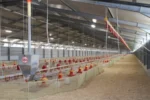
2. How Many Bags Of Feed For 1000 Broilers In Nigeria?
For 1,000 broilers, you will need approximately 50 to 70 bags of feed (25kg each) over 6-8 weeks. The amount may vary depending on the size of the birds and feed efficiency, so be sure to monitor your birds’ growth regularly.
3. Which poultry is most profitable: broilers or layers?
Both broilers (meat production) and layers (egg production) can be highly profitable, but they offer different types of income streams. Broilers have a quick turnaround time (6-8 weeks), allowing for multiple harvests per year, while layers provide a steady stream of income over a longer period.
If you’re looking for fast returns, broilers might be your best option, while layers offer long-term stability and consistent income.
4. How can I start a poultry business in Nigeria?
To start a poultry business in Nigeria, follow these steps:
Create a Business Plan: Determine your goals, target market, and finances.
Secure Capital: Budget for chicks, feed, housing, and labor.
Set Up Infrastructure: Build a poultry house, buy feeders, drinkers, and other equipment.
Buy Quality Chicks: Choose either broilers or layers, based on your preference and market demand.
Manage Feed and Health: Focus on proper nutrition and disease prevention.
Find a Market: Build relationships with buyers for eggs or poultry meat.
5. How many bags of feed do I need for 100 layers?
For 100 layers, you will typically need 6 to 9 bags of feed per month (25kg each). The exact number will depend on the breed of your layers and their specific nutritional needs.
6. What is the cost of rearing 200 broilers in Nigeria?
The cost of rearing 200 broilers includes the price of chicks (₦50,000 – ₦100,000 for 200 chicks), feed (₦70,000 – ₦100,000), housing (₦50,000 – ₦100,000), and other operational costs such as labor, medications, and utilities. Total costs could range from ₦200,000 to ₦300,000 depending on your setup and management.
7. How profitable is poultry farming in Nigeria?
Poultry farming in Nigeria can be very profitable if done correctly. Broilers, in particular, can offer net profits of ₦2,000,000 to ₦2,500,000 per cycle when raising 1,000 birds. Layers can provide a steady income of ₦200,000 to ₦450,000 per month for 1,000 layers. Success in poultry farming largely depends on good management, disease prevention, and market access.
8. How do I increase the profitability of my poultry farm?
To increase the profitability of your poultry farm:
Improve feed efficiency: Buy quality feed or consider making your own to save money.
Focus on bird health: Vaccinate regularly and maintain cleanliness to avoid diseases.
Scale up gradually: Start with a small number of birds and scale as you gain experience and confidence.
Find reliable markets: Establish relationships with buyers in your area, whether it’s for eggs or poultry meat.
Monitor costs: Regularly track your expenses and look for ways to cut costs, such as bulk buying feed or minimizing labor.
Conclusion: Can Poultry Farming Be Your Key to Profit?
Absolutely! Poultry farming in Nigeria has the potential to be incredibly profitable, whether you’re starting with broilers or layers. By understanding your costs, managing feed and health, and ensuring access to markets, you can turn poultry farming into a thriving business.
If you’re serious about starting a poultry farm, now is the time to start planning. Take action today and watch your profits grow with the right strategies and smart management.
Want to learn more about starting your poultry farm or need advice on any of the steps? Drop a comment below – I’d love to help you out!
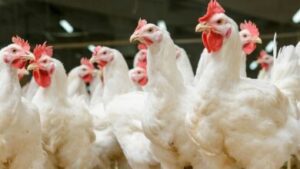
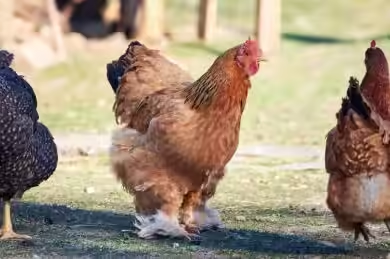

Good and interesting to learn from you.